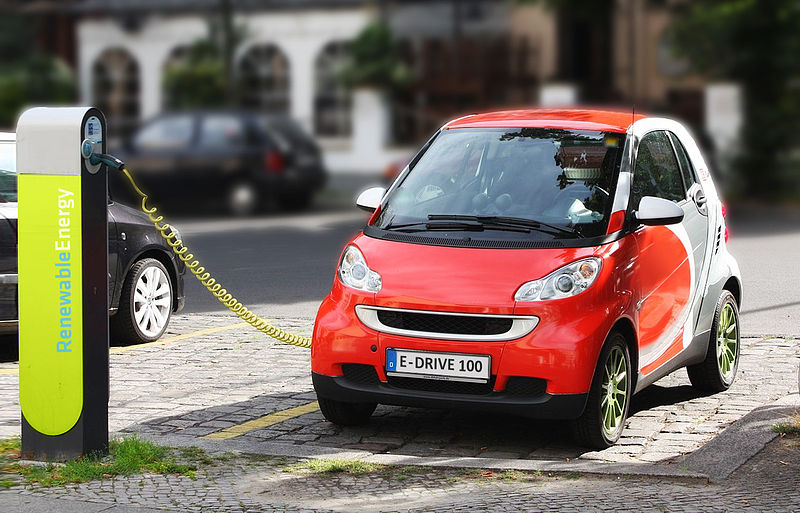 By MIRIAM ACZEL
By MIRIAM ACZEL
A recent study conducted by Aarhus University in Denmark and the University of Sussex in the United Kingdom and published in Nature Energy has found that car dealerships are a key impediment to the uptake of electric vehicles (EVs) compared to diesel- and gasoline-fueled vehicles in Northern Europe. The study, which focusses on Nordic countries, found that this outcome stems from sales personnel failing to mention EVs and providing customers with misinformation about electric vehicle specifications, with a “bias towards selling traditional, internal combustion engine vehicles (ICEVs) instead.” Importantly, the study found that of the 126 car dealerships examined and that sell EVs, over three quarters neglected to mention electric vehicles.
One of the authors, Professor Benjamin Sovacool, commented further on these findings for The Current in personal communication: “We essentially find that, contrary to conventional wisdom, most car dealerships do not want to sell electric vehicles, even though they cost more (in total purchase price) than ordinary vehicles. This creates a key barrier to adoption that has not yet been addressed by policy, let alone explored systematically in research.”
Car Dealerships as an Intermediary
Professor Sovacool explained that dealers act as a “key agent—an intermediary—between a product and service on the one hand, and the user, customer, or owner on the other hand. They can thus exert very strong influence over what consumers think and do; I even remember fondly my own first experience with a car dealer which was positive, buying my first new car when I was 18 years old with my dad. The dealer steered me towards the vehicle he thought I would want—and looking back, played an even stronger role than my dad in influencing my selection process.It’s even more so now with EVs, because they are still a relatively new technology and people don’t know much about them. We hypothesized that dealers would actually be more supportive of EVs, especially in the Nordic region, and were somewhat shocked by our findings. This is an example of good data driven or puzzle based research: we didn’t know the answer to our questions until the research was done.”
He continued that, “unless dealerships change their attitudes towards EVs, and their sales practices, they may remain forever marginalized as a mode of transport.”
Electric vehicles are crucial in decarbonization as they have the potential to drastically reduce the amount of greenhouse gas emissions that contribute to climate change. According to the study, EVs have the potential to help “achieve national and international climate targets by reducing emissions of both the transport sector, which accounts for one-quarter of energy-related global greenhouse gas emissions, and the electricity sector, via better integration and utilization of renewable energy sources.” However, while Nordic countries are often thought of as pioneers and leaders in environmental and energy initiatives and policy, as the study shows, with the exception of Norway, their policies largely incentivize the sale of conventional diesel and gasoline cars.
Role of Government and Industry Policies
The study also found that government and industry policies impacted sales of EVs. For example, Denmark was the only country that had reinstated a tax on electric powered vehicles, and subsequently experienced a drop in the sales of EVs. Unfavorable national policies such as a tax on EVs have a detrimental impact on EV sales–if governments want to reduce national greenhouse emissions, they must promote sales of cleaner electric vehicles through developing favorable policies. As co-author Lance Noel explained, “it’s clear that if governments want consumers to purchase EVs, then governments need to make it more beneficial for consumers, otherwise the dealers will always revert to the cheaper, easier [to sell] ICEV.”
This study highlights important lessons that are applicable beyond the Nordic countries. First, in order for EVs to become the more common choice for consumers, policymakers must develop systems of taxation that address “capital costs of EVs rather than the cost of ownership.” Second, there is a need for educational and training programs so that sales personnel and dealerships can understand the specifications and benefits of electric vehicles and can give customers accurate information. Thus, in order to increase the uptake of electric vehicles, industry and governments must fundamentally improve promotion of electric vehicles. Without incentivization of electric vehicles—until the ‘playing field’ is leveled—car dealers will continue to promote and consumers will continue to purchase ICEVs instead of their electric counterparts.
Editor’s Note: this article originally appeared on the Women’s Council for Energy and the Environment (WCEE)’s journal, The Current: https://www.wcee.org/?Current2018Q2
Miriam Aczel is a President’s PhD Scholar at the Centre for Environmental Policy, Imperial College London, focusing on international energy and environmental science and policy. She is also Director of Communications for Leaders in Energy, and the co-founder and co-director of the Amir D. Aczel Foundation for Research and Education in Science and Mathematics in Cambodia.



Leave a Reply